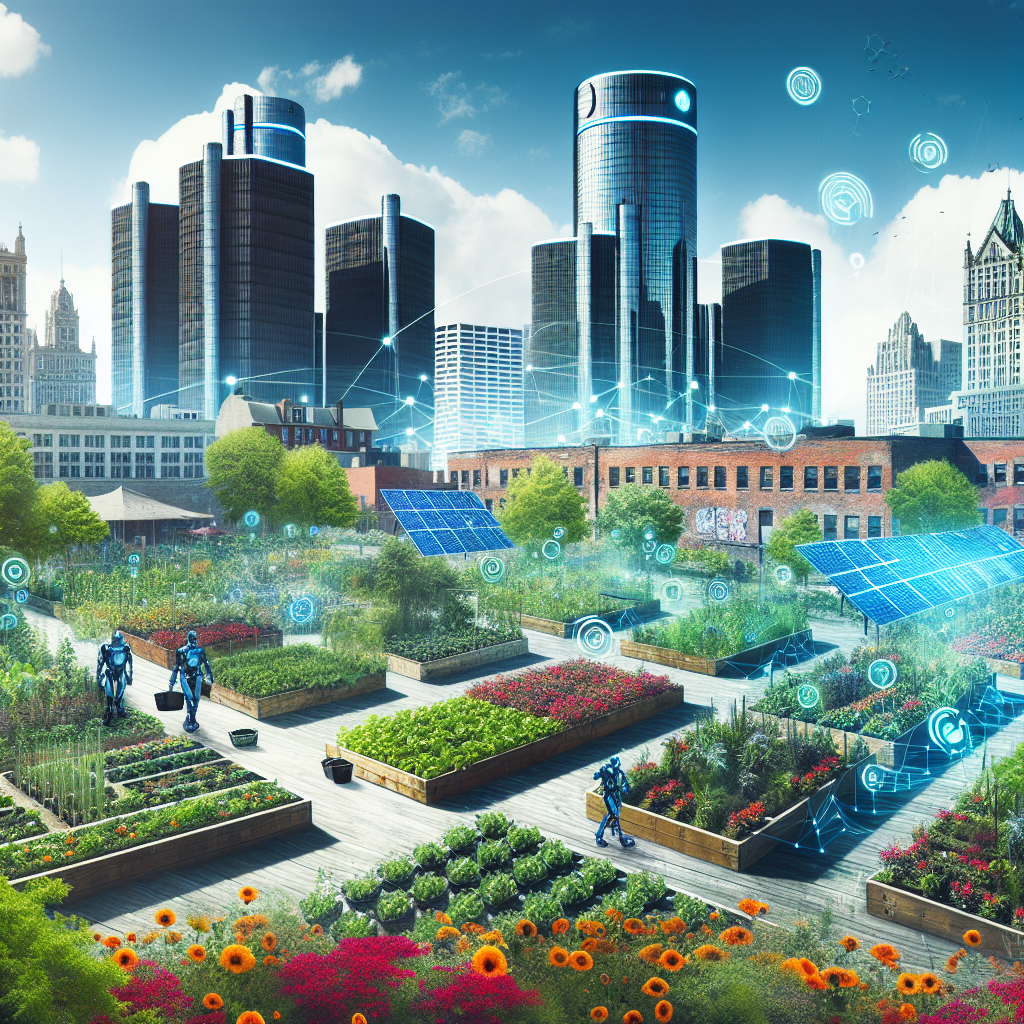Cultivating Growth: The Impact of Detroit Community Gardens
Explore the multifaceted world of Detroit community gardens, delving into their environmental, social, and economic benefits, alongside challenges and solutions. Gain insights from experts in urban agriculture and urban planning, and learn about the vital role of advocacy and policy in fostering sustainable urban farming practices.

Overview of Detroit Community Gardens
Community gardens in Detroit have emerged as vital spaces for urban agriculture, community engagement, and environmental sustainability. These green oases in the city provide various benefits to residents and contribute to the revitalization of neighborhoods.
Importance of Community Gardens in Urban Environments
According to Dr. Sarah Taylor, a researcher in urban agriculture at the University of Michigan, 'Community gardens play a crucial role in promoting local food production, fostering social connections, and enhancing urban green spaces in densely populated areas.'
Benefits of Detroit Community Gardens
Environmental Benefits
Detroit community gardens help mitigate urban heat islands, absorb carbon dioxide, and promote biodiversity in urban areas. By converting vacant lots into green spaces, these gardens improve air quality and reduce stormwater runoff.
Social Benefits
Community gardens in Detroit serve as hubs for social interaction, skill-sharing, and cultural exchange among residents. They strengthen community bonds, promote wellness, and provide educational opportunities for local youth.
Economic Benefits
The economic benefits of Detroit community gardens are multifaceted. They create employment opportunities, stimulate local economies through farmers' markets, and reduce food insecurity by increasing access to fresh produce in underserved neighborhoods.
Case Studies in Detroit Community Gardens
Urban Farming in Detroit: A Success Story
One notable case study is the rise of large urban farms in Detroit, such as the Michigan Urban Farming Initiative (MUFI). MUFI has transformed vacant lots into productive farmland, demonstrating the potential for urban agriculture to revitalize communities and address food desert challenges.
Community Collaboration in Garden Maintenance
Another successful model is the collaboration between local residents and organizations to maintain community gardens. The Feedom Freedom Growers exemplify this approach, where volunteers work together to cultivate and sustain neighborhood green spaces.
Challenges and Solutions
Land Access and Ownership
One significant challenge for Detroit community gardens is securing land tenure and navigating complex ownership issues. Community land trusts and partnerships with local government can help ensure long-term access to land for urban agriculture initiatives.
Funding and Resource Constraints
Limited funding and resources pose obstacles to the sustainability of Detroit community gardens. Diversifying funding sources, leveraging grants, and engaging corporate sponsors can provide financial stability and support ongoing garden operations.
Community Engagement and Participation
Maintaining community engagement and fostering active participation are essential for the success of Detroit community gardens. Implementing outreach programs, educational workshops, and involving residents in decision-making processes can enhance community involvement and ownership.
Expert Insights
Quote from Urban Agriculture Researcher on Impact of Community Gardens
Dr. Karen Lee, a leading expert in urban agriculture, emphasizes the significance of community gardens: 'Community-based agriculture initiatives not only promote food sovereignty but also contribute to urban sustainability goals by enhancing biodiversity and reducing food miles.'
Perspective from Urban Planner on Sustainable Urban Agriculture Practices
According to John Thompson, an urban planner specializing in sustainable development, 'Integrating urban agriculture into city planning strategies can foster resilient, equitable food systems and create healthier, more vibrant urban environments.'
Advocacy and Policy
Local Government Support for Community Gardens
Several cities, including Detroit, have recognized the value of community gardens and have implemented supportive policies and programs. Zoning regulations that permit urban agriculture, community garden grant initiatives, and partnerships with municipal agencies are crucial for promoting urban farming in the city.
Advocacy Efforts for Urban Agriculture Development in Detroit
Local organizations and advocacy groups in Detroit are actively working to elevate the profile of urban agriculture and secure adequate support from policymakers. Grassroots campaigns, advocacy events, and policy recommendations are essential to advancing the urban agriculture agenda in Detroit.
Conclusion
In conclusion, Detroit community gardens are more than just green spaces; they are hubs of environmental stewardship, social cohesion, and economic empowerment. By understanding the benefits they offer, addressing challenges, and harnessing expert insights, we can nurture a thriving urban agriculture ecosystem in Detroit.
Call to Action
To support the growth of Detroit community gardens and sustainable urban agriculture practices, it is essential for stakeholders, policymakers, and community members to collaborate, advocate for supportive policies, and invest in the long-term viability of urban farming initiatives. Let us work together to cultivate a greener, healthier future for Detroit.